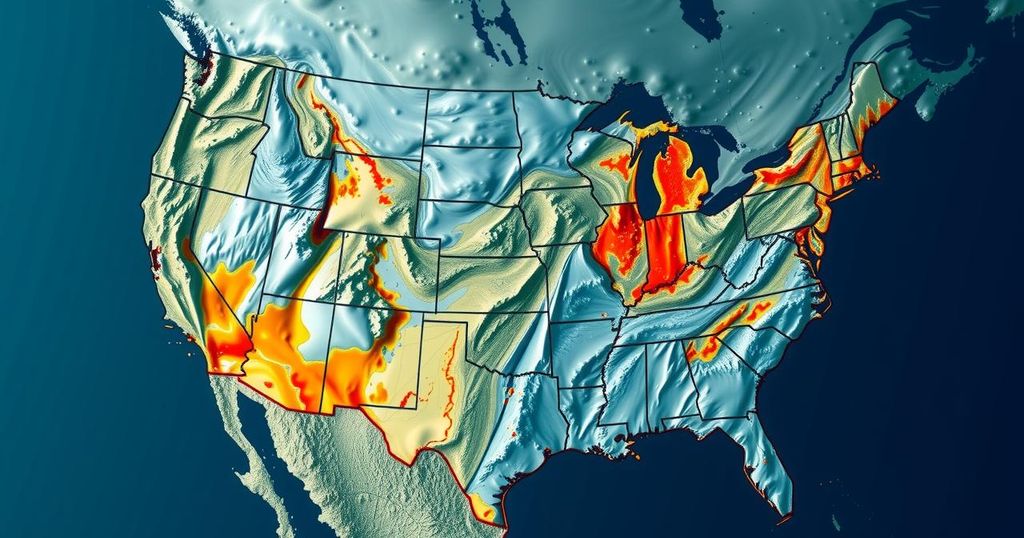Upcoming changes in American climate policy, especially with Donald Trump’s potential return in 2024, may jeopardize global shifts toward effective climate action. This oscillation between commitment and withdrawal raises significant concerns for developing nations, which confront immediate climate crises while wealthier countries oscillate politically. As nations seek resolutions beyond U.S. leadership, the conversation may transform significantly, emphasizing both local initiatives and the need for shared responsibility moving forward.
The recent shifts in American climate policy, particularly with the prospect of Donald Trump’s return to the presidency in 2024, have prompted significant concern among the international climate community. Following the optimistic moment in 2016 when the United States joined the Paris Agreement under President Barack Obama, the abrupt withdrawal in 2017 under Trump showcased a troubling trend. Joe Biden’s subsequent rejoining of the agreement in 2021 seemed to restore hope, yet the cyclical nature of U.S. climate policy raises doubts about its reliability as a leader in climate action.
This back-and-forth between engagement and disengagement in climate efforts poses a critical dilemma for the Global South, where the stakes are far higher. Nations that are often the least responsible for global emissions, yet disproportionately affected by their consequences, are left grappling with a fundamental question: how can they honor commitments to reduce emissions when wealthier nations treat their obligations as negotiable? The ramifications of a possible American withdrawal on global dialogues, particularly at COP30, are anticipated to be profound, potentially relegating the summit to an academic discussion rather than a platform for actionable solutions.
Furthermore, the argument that climate commitments disadvantage American industry appears increasingly hollow to developing nations. They witness firsthand the immediate impacts of climate change — collapsing agriculture, rising sea levels, and forced displacement. For these countries, the economic implications are not speculative future risks but current crises demanding urgent solutions.
The looming policy shifts in the United States may catalyze a transformative moment in global climate diplomacy, shifting the focus away from reliance on wealthy nations for climate action. With American policy uncertain, developing nations are beginning to explore independent climate resilience strategies and partnerships, as seen in the growing influence of China within the Global South.
The central challenge remains rooted in establishing stable climate frameworks that can endure the unpredictable nature of political climates. Alternatives such as decentralized cooperation efforts involving cities and regions offer potential paths forward, suggesting that effective climate action may emanate from local initiatives rather than from national commitments.
Ultimately, the enduring aspiration of the Paris Agreement was to forge mutual trust and shared responsibility in addressing climate change. The repeated disruptions in U.S. political leadership hinder this trust and magnify the skepticism of the Global South towards Western nations. Climate cooperation is at a precarious juncture as the impacts of climate change intensify, and the hope for robust international engagement diminishes. The future of global environmental governance stands in the balance, hinging on whether nations can transcend political volatility to uphold their commitments to mitigating climate change.
The fluctuating nature of U.S. climate policy under different administrations poses significant challenges for international efforts to combat climate change. The United States’ initial embrace of the Paris Agreement in 2016 signified a commitment to global climate leadership, yet subsequent withdrawals have raised questions about the consistency of such leadership. The contrast between developed and developing nations’ capacities and commitments to climate action has heightened tensions in international climate dialogues, revealing deeper issues of trust and responsibility. As the Global South faces existential climate challenges, the reliability of commitments from wealthier nations is scrutinized, leading to calls for more independent and resilient climate strategies.
In summary, the evolving dynamics of American climate policy underscore the fragility of international climate agreements. The potential return of Donald Trump to the presidency threatens to undermine global efforts to address climate change, particularly impacting the Global South, which grapples with the dire realities of climate impacts. As developing nations seek to forge their paths forward in climate resilience amid uncertainties, the era of depending on Western leadership is drawing to a close. The future of international climate action will depend on establishing frameworks that can endure political instability and prioritize shared responsibilities.
Original Source: www.ips-journal.eu






